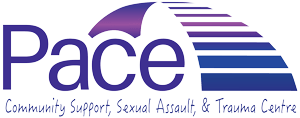INTERGENERATIONAL HEALING PROGRAM
Building Safe & Caring Communities Through Support & Education
You are here: Home » Programs » Support Programs » Intergenerational Healing
Intergenerational Healing: A Trauma Informed Approach to Parenting is a 15-week, closed group psycho-educational program aimed at improving the lives of children by providing trauma informed resources to parents who have a desire to strengthen or develop secure/healthy attachment with their children.
The program contains facilitated discussion and activities with participants. These discussions support the integration of the program information into the development of self-care practice, emotional and social skill development, healthy relationship building, and the development of secure attachments with children in their care/lives.

IGH is a closed support group that provides participants opportunity to understand and work through underlying and often complex issues and challenges to safe and positive parenting. Participants will build or add to their toolkits for enjoying more positive outcomes in their parenting journey and strengthening parent /child relationships.
IGH is intended to help children develop and thrive to become safe, caring, engaged adults. To this end the group supports adults in the child’s life to be safe and caring parental/caregiver role models.
IGH Group will be offered by PACE in Grande Prairie.
Please note: The next Pace IGH group in Grande Prairie is scheduled to for Monday evenings from 6:30pm to 8:30pm beginning March 4th, and ending June 24th, 2024
For more information, or to arrange for screening and an intake interview, please contact Pace.
780-539-6692
OR Email
What is trauma?
Trauma occurs when we are exposed to traumatic events or traumatic situations, and when this exposure overwhelms our ability to cope with what we have experienced.
- Exposure to trauma may occur repeatedly over long periods of time. These are called chronic traumatic situations.
- Trauma that occurs at a particular time and place and is usually short lived, is know as acute traumatic events.
Trauma calls forth a range of emotional responses, including but not limited to; intense or overwhelming feelings of fear, horror, helplessness, confusion, anxiety, loss of trust in others, decreased send of personal safety, and feeling of guilt and shame.
Trauma Unresolved
Trauma may be left unresolved for many reasons. It may be that the trauma is not disclosed or discovered, or others may not know how to support someone in processing trauma. It may be that the person experiencing trauma appears to be doing fine. When traumas unresolved, the impact may re-surface in ways that are damaging, long after the traumatic event(s).
Relationship breakdowns, addictions, mental health issues, and struggles with success in education, employment, social connections, and parenting, can all have roots in unresolved trauma.
PROGRAM DETAILS
Eligibility is determined during a required screening interview. We accept referrals from individuals and other organizations.
Program Sponsors
The Government of Alberta
Program Costs
There is no fee for this program to eligible candidates.
“Trauma is personal. It does not disappear if it is not validated. When it is ignored or invalidated the silent screams continue internally heard only by the one held captive. When someone enters the pain and hears the screams healing can begin.”
Danielle Bernock
SELF CARE

Self-care is the underpinning of each session through which participants explore:
- Safety, trust, grief, and loss
- Growth throughout life, and crisis as a catalyst for change
- Balance between control and responsibility
- Family roles and methods of response
- Family maps, meaning and messages
- Intergenerational trauma, processing trauma for self
- The developing brain, attachment, achievement, autonomy and altruism
- Child ages and stages of development
- Support to children processing trauma
- Effective communication in interpersonal relationships
- Linking emotions, thoughts, and behaviours
- Understanding family violence
- Addictions and mental health
- Emotional and executive function skill development
Trauma-informed practice
As a leader in working with client trauma, Pace offers this group program for adults who feel that trauma may be impacting their relationships, and/or affecting the children in their care.
The importance of community partnerships
Pace collaborates with local agencies or organizations to support the success of the program through partnership agreements. Partnership agreements may include:
- Provision of space and hosting for group meetings
- Screening referral readiness
- Scheduling intake interviews with program staff
- Assistance with arranging transportation and/or childcare
- Follow-up with participants who may find some content overwhelming
- Re-connecting with participants who mis a group
- Designating staff to participate in group
If your organization provides services to a population who may benefit from this group, and if you are able to partner to ensure the groups success in your community, please contact the Program Coordinator.
